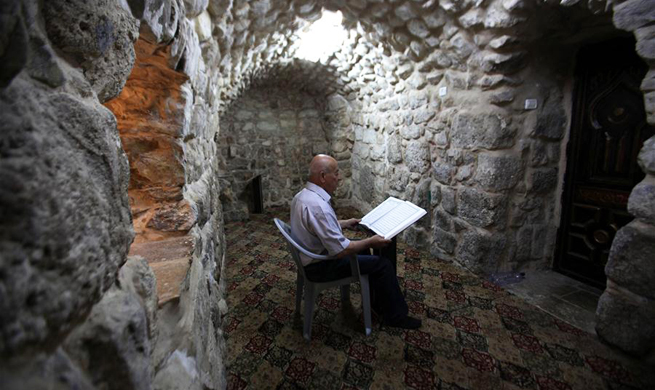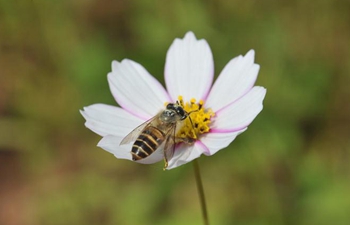by Elias Shilangwa
LUSAKA, May 29 (Xinhua) -- A long-practiced tradition in Zambia where a man pays bride price for a woman he wants to marry is under threat as calls for its abolishment intensify.
The bride price, which is known as Lobola in many parts of the country, is paid by the family of the man to the family of the woman before the two are married off.
According to the tradition, this is done to compensate the woman's family for their daughter and to show gratitude on how they raised her.
But over the years, its intended purpose is being lost. For some men, paying a bride price equals "buying" the woman, who becomes their property that can be treated in whatever ways they want, including beating.
On the other hand, there is a growing concern of the commercialization of the bride price where parents see it as a source of income, a move that is fueling early marriages, especially in rural parts of the country.
The size of the dowry price now depends on how affluent the man is and how far the woman went in her education, which led to an increase in the amount of money charged.
Questions are now being asked on whether it is necessary to continue with the practice.
In February, the Zambian government was forced to dismiss media reports that it intends to pass a law to abolish the payment of bride price.
Meanwhile, the women movement has reignited calls for the abolishment of the practice.
The Non-Governmental Organizations' Coordinating Council (NGOCC), an umbrella body of women organizations in the country, said the practice puts women in bondage.
Sarah Longwe, the organization's chairperson, said the practice should be abolished as it contributed to an increase in gender-based violence cases, early and forced marriages.
She said it was unfortunate that even tribes that previously never involved in the practice have started doing so and demanding for money just for financial gain.
"Let Lobola be abolished just as we abolished the practice of sexual cleansing and other bad practices in order to safeguard women. Society has started viewing women and girls as goats, chickens and cows that they can easily exchange with money," she said in a statement.
She added that a number of women were being unjustly treated as men boasted of having bought them and that they had a right to treat them in the manner they wanted.
The practice was introduced by ancestors and worked well in their time but now it was exploiting and working against women in this generation, she said.
The proposal has since received widespread reactions from a cross section of society.
For Salome Mwaba, a 29-year-old public worker and a resident of Lusaka, the country's capital, the practice should be abolished as it commercialized and degraded women.
"It's Lobola that makes men think marrying a woman is doing her a favor. Marriage is two people in love settling down. No one does the other a favor," she said.
Her views have been supported by Oliver Sakanyi who feels that the decision to ban the practice was long overdue, adding that although the original concept of paying bride price was good, it has now lost its intended purpose.
"What most Africans should realize is that dowry is an ancient practice that many people around the world once practiced, Europe included. However, in the course of time they realize that it was not a very useful practice and so they did away with it," he said on Facebook.
"The problem with us Africans and others is that we like to hold on to some archaic practices in the name of culture, forgetting that culture is dynamic," he added.
For Iress Phiri, director of the Zambia National Traditions Councilors, an organization that teaches young girls about marriage and womanhood, the commercialization of the bride price has eroded the idea for which bride price was intended for.
While acknowledging that the practice was sacred and still holds value to the country's traditions, she said it was unfortunate that it is now being used as a business to raise money.
She noted that the exorbitant prices being charged raise questions on whether the tradition aspect was still attached to it.
Others however believe that the tradition needs to be preserved due to the significance it attaches to the formalization of a marriage.
"Why abolish it? It is part of our customs and we need to preserve it. It wrong for people to attach gender-based violence to Lobola," said Senior Headman Chitembe, a traditional leader from central Zambia's Mumbwa district.
According to him, men who were using Lobola as a reason to mistreat their wives do not really understand the purpose of paying the bride price, adding that they just wanted to hide their brutality behind a noble tradition.
The payment, he said, was used as a symbol for the man to show how serious he was about marrying the woman and to give assurance to her family that he was ready to take care of her.

















